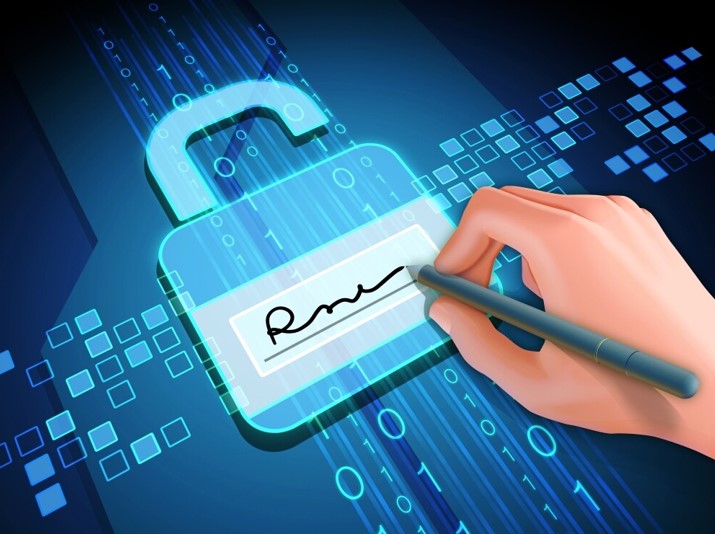Legality of Electronic Signatures in Hong Kong

Working from home has become the new normal for many businesses since the onset of the COVID-19 pandemic. It is not always easy to sign a document with a traditional “wet-ink” signature with limited printing and scanning facilities at home. As such, many businesses across the world have explored the increased use of electronic signatures. This article considers the position of electronic signatures under Hong Kong law.
What Is An Electronic Signature?
The legislation which regulates electronic signatures (“e-signatures”) in Hong Kong is the Electronic Transactions Ordinance (Cap. 553)(“ETO”). The legal definition of “e-signature” under the ETO is quite wide, it includes any letters, characters, numbers or other symbols in digital form attached to or logically associated with an electronic record, and executed or adopted for the purpose of authenticating or approving the electronic record.
For contracts not involving a government entity, e-signatures are valid and enforceable provided they comply with the requirements under the ETO in Hong Kong including:
- an electronic record is accompanied with the associating signature to indicate authenticity and approval by the signatory;
- the e-signature process must be reliable as is appropriate given the purpose for which the signature is required; and
- the recipient must consent to the signatory using an e-signature.
There are no express requirements for an e-signature to be in a certain form or format in Hong Kong. Traditionally, an electronic signature has meant a physical wet-ink signature on a document which is scanned into PDF, and then sent by email. In recent years, e-signature platforms such as DocuSign, Adobe Sign and PandaDoc have also offered an alternative solution to wet-ink signatures. These applications enable documents to be sent to a signatory and signed by that signatory by adding on pre-drawn signatures or choose to draw his/her own on a device; printers and scanners are not required.
If the contract involves any government entity, digital/electronic signatures supported by a recognised digital certificate issued by a Certification Authority recognized under the ETO in Hong Kong will be required.
Scope and Applicability of E-Signatures
Electronic signatures will be valid and binding on most contracts and documents provided that they satisfy the requirements set out in the ETO, however the following documents must be signed with a traditional wet-ink signature in Hong Kong in order to be valid:
- Testamentary documents
- Trusts (other than resulting, implied or constructive trusts)
- Powers of Attorney
- Documents that are required to be stamped/endorsed under Stamp Duty Ordinance (e.g. a lease, sale of property, sale of stock)
- Government conditions for the grant of land or government leases
- Documents concerning land and property transactions
- Negotiable instruments
- Court orders/ judgments
- Warrants issued by a court or a magistrate
- Oaths and affidavits
- Statutory declarations
Practical Considerations of Electronic Signatures
Parties who wish to execute contracts by e-signatures in Hong Kong should first check that such contract is permitted under the ETO to be signed electronically and consider whether there are any circumstances that may impact the use of e-signatures (e.g. registration or filing requirements). The parties should ensure that any use of e-signature systems are sufficiently secure and reliable; they should take steps to satisfy themselves that the signature adequately identifies the signatory and that the signatory has associated his/her signature with an electronic message indicating his/her approval of the contents of the contract.


